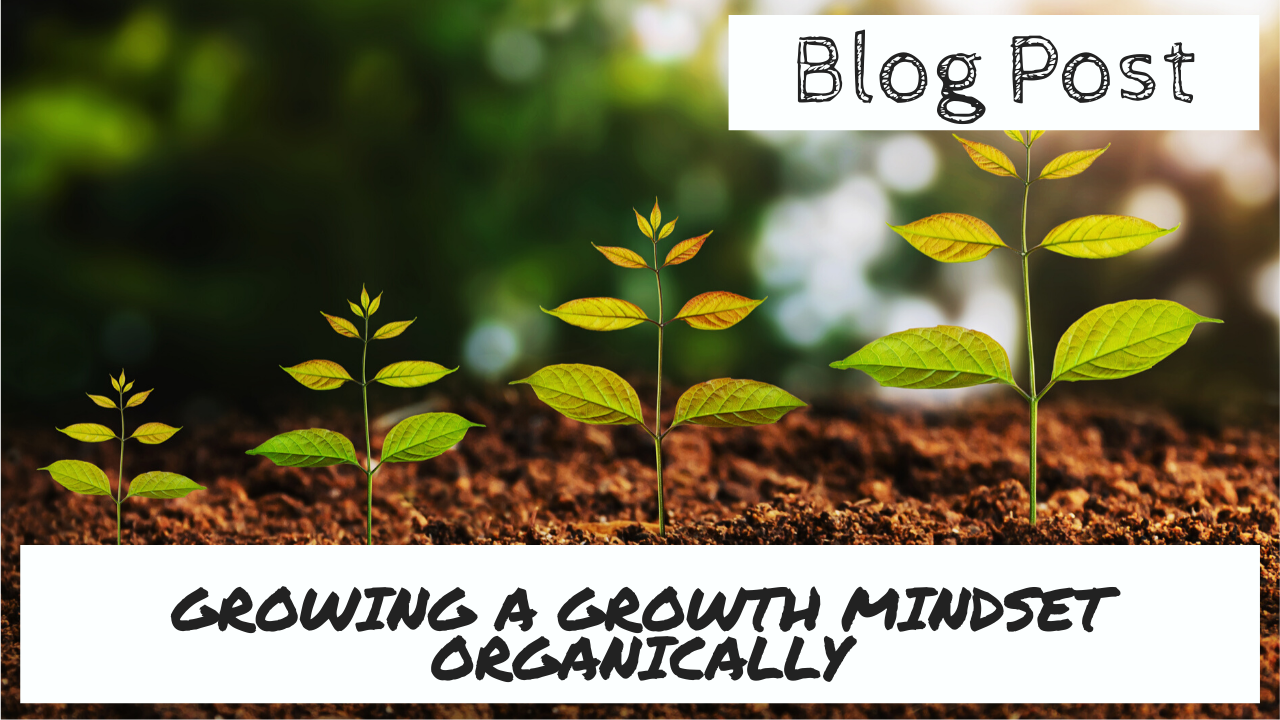|
Think about the following statements: You can learn new things but you can't really change your overall intelligence. Your intelligence is just like your foot size or eye colour, you can't really change it too much. If you tend to agree with these, then you probably lean towards having a closed mindset. A belief that your intelligence is determined by genetics and you are born with a certain capacity of information. Having an open mindset, on the other hand, is the belief that this is simply not true. It is the belief that just like your muscles, you can train, refine and grow your brain and increase its capacity for information and skill acquisition. Growth mindset has been another buzzword floating around for the past 10 years in education, but what does it actually mean and how do you develop a growth mindset in your classroom? It sounds complicated but actually you can grow children's mindset organically and subtly, by making a few small tweaks. What does the research say?London taxi drivers have to give their brains a workout when they navigate the complicated streets of London. Research suggests this has an impact on the brain. The part of the brain responsible for spatial awareness is bigger in taxi drivers compared to other Londoners. And the longer a person has been a taxi driver, the bigger that part of the brain - evidence that the brain can be strengthened and developed. The brain changes and develops throughout life – a process called neuroplasticity. Certain experiences cause new connections in the brain to form or strengthen, making the brain smarter by literally rewiring it. But what experiences encourage this development? Do we have to dedicate time to develop growth mindset or can we encourage this in the classroom naturally? Growth Mindset Through FeedbackIs copying others stealing and plagiarism? Nussbaum & Dweck (2008) - identified that after completing an assessment, closed mindset children were much more likely to want to see children that had performed worse than them. However, children with growth mindsets wanted to see the best assessments in order to learn from them. In your classroom, encourage the sharing of ideas. Gallery walks give children an opportunity to move around the classroom and look at other children's work in order to use their ideas in their own. Use children's work when sharing great examples. Take a picture, stick it on your interactive whiteboard displays and build learning from there. Children will develop the understanding that learning from each other is the most constructive way to improve and that not being the best is an opportunity and not something to be avoided. Growth Mindset Through Praise
In contrast, if you praise and celebrate the process and effort, a child will seek challenges in order to be rewarded further for their efforts. They are awarded for trying hard, regardless of whether they fail or succeed. In the classroom, rewards and praise should be focused on how hard a child worked; how focused they were and how much they challenged themselves not on what grade they scored! By awarding house points or stickers for effort, you are showing the child, and the class, that it is not the outcome that is important but the process. Growth Mindset Through Making MistakesTo take this further, children should not only be ok with making mistakes but should be encouraged to make them by taking risks. Only then are they truly challenging themselves. Most of us do not read the instructions of a new mobile phone before trying to use it, we 'give it a go' first before referring to the manual if and when we get stuck. Why do we do this? It is more rewarding to discover for yourself and learn by mistakes; correcting yourself as you go. So, celebrate mistakes and celebrate how a child reacts to the mistake. We all know those toddlers who fall over. The first thing they do is look at their parent to decide what they should do next, should they cry? If a parent reacts in a horrified manner, the child will most definitely cry! If the parent responds positively and encourages them to get back up and carry on, the child will replicate this. Congratulate children when they make a mistake and try again. Share stories of your own failures and how you overcome them. Share with the children the things you find most difficult as a teacher. Most importantly, model making mistakes. Purposefully make mistakes when you teach - the children love it! You are removing the fear of failure. What is the impact?A study with middle school students (Blackwell, Trzesniewski, & Dweck (2007)) looked at the impact of fixed versus growth mindsets on achievement in math—a subject that many students find challenging. Students with a growth mindset earned higher math grades over time compared to students with a fixed mindset - regardless of starting points. Mindsets have also been shown to predict who takes more advanced courses. In a study with middle school students, those with a growth mindset were more likely to be placed into advanced maths courses over time - Romero et al. (2014) . Ultimately, growth mindset is not some crazy, higher order belief that takes an age to develop. It is simply the belief that everyone is capable of getting better as long as they put their mind to it and truly believe that they can. And just like the toddler who falls, we all need someone to encourage us and to believe that we can get back up again and carry on. Find out more in this Vlog! - Growth Mindset
0 Comments
Leave a Reply. |
SearchWith a keen interest in the neuroscience and psychology of learning, WAGOLL Teaching is about sharing research alongside great, simple teaching ideas to a global teaching community.
Ben has been in education for over 10 years and is passionate about simplifying high quality teaching and learning through innovative and practical approaches in the classroom. sUBSCRIBE |
|
Who are we? |
With a keen interest in the neuroscience and psychology of learning, WAGOLL Teaching is about sharing research alongside great, simple teaching ideas to a global teaching community.
|
All copyright reserved ©.
I would like to remind all visitors to this website that all pages on this site are copyright protected, unless stated. Most importantly, this site is for the use and enjoyment of all children, parents, guardians, carers and teachers who are involved in WAGOLL Teaching. Please use the resources/ideas as you need without replicating them for your own gains.
I would like to remind all visitors to this website that all pages on this site are copyright protected, unless stated. Most importantly, this site is for the use and enjoyment of all children, parents, guardians, carers and teachers who are involved in WAGOLL Teaching. Please use the resources/ideas as you need without replicating them for your own gains.









 RSS Feed
RSS Feed


